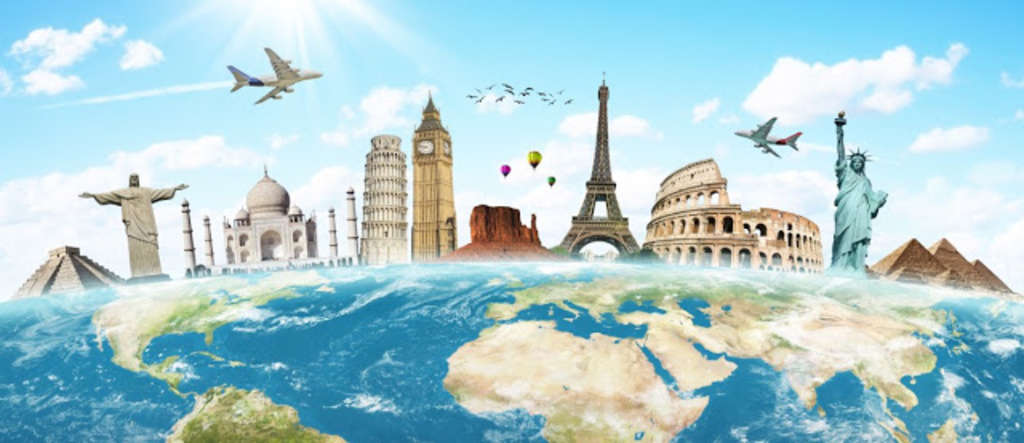The COVID-19 pandemic has had a significant impact on the hospitality and tourism industry, resulting in a massive decline in travel and tourism. However, as vaccination rates increase and restrictions ease, the industry is slowly recovering.
This article aims to provide an overview of the hospitality and tourism industry’s current state and highlight the recovery efforts and strategies that are being implemented to revive the industry.
The hospitality and tourism industry has been one of the hardest-hit industries during the COVID-19 pandemic. The industry’s decline has had a ripple effect on the economy, with millions of jobs lost and businesses closing down. However, as the world continues to fight against the pandemic, the industry is slowly recovering.
Current State of the Hospitality and Tourism Industry:

The pandemic has had a significant impact on the hospitality and tourism industry, resulting in a massive decline in travel and tourism. According to the World Travel and Tourism Council (WTTC), the industry’s contribution to global GDP fell by 49.1% in 2020, resulting in the loss of 62 million jobs worldwide.
The decline in travel and tourism has had a significant impact on all sectors of the industry, including hotels, restaurants, airlines, and attractions. Many businesses were forced to close down, and those that remained open had to implement safety measures to ensure the safety of their employees and guests.
Recovery Efforts and Strategies:
The hospitality and tourism industry is slowly recovering as vaccination rates increase and restrictions ease. Governments, businesses, and organizations are implementing recovery efforts and strategies to revive the industry. Some of these strategies include:
-
Vaccine Passports:
Vaccine passports are being implemented in some countries to allow vaccinated individuals to travel without restrictions. This strategy can help revive the travel and tourism industry and increase consumer confidence in the safety of travel.
-
Health and Safety Measures:
Businesses are implementing health and safety measures to ensure the safety of their employees and guests. These measures include increased cleaning and sanitization, contactless check-in and check-out, and social distancing.
-
Digital Transformation:
The pandemic has accelerated the digital transformation of the hospitality and tourism industry. Businesses are adopting digital technologies to provide a seamless and contactless guest experience, such as mobile check-in and ordering, virtual tours, and digital payment methods.
-
Domestic and Regional Tourism:
Domestic and regional tourism has become popular as international travel remains restricted in many countries. Governments are promoting domestic and regional tourism to revive the industry and support local businesses.
-
Sustainability:
Sustainability has become an essential factor in the recovery efforts of the hospitality and tourism industry. Businesses are implementing sustainable practices to reduce their environmental impact and meet the growing demand for sustainable travel experiences.
Future Outlook for the Industry:

The hospitality and tourism industry’s future outlook is positive as vaccination rates increase and restrictions ease. However, the industry will continue to face challenges as it recovers from the pandemic’s impact. Some of the challenges include:
-
Changing Consumer Preferences:
Consumer preferences have changed as a result of the pandemic, and businesses will need to adapt to meet these changes. Consumers are seeking more personalized and contactless experiences, and businesses that can provide these experiences will be more successful in the post-pandemic world.
-
Labor Shortages:
The hospitality and tourism industry is facing a labor shortage as a result of the pandemic. Many workers have left the industry due to job losses and safety concerns, and businesses will need to implement strategies to attract and retain employees.
-
Economic Uncertainty:
The pandemic has created economic uncertainty, and the hospitality and tourism industry will continue to face challenges as the economy recovers. Businesses will need to adapt to the changing economic landscape and consumer behavior to remain competitive in the market.
-
Competition:
The hospitality and tourism industry is highly competitive, and businesses will need to differentiate themselves to stand out in the market. Offering unique and personalized experiences, implementing sustainable practices, and adopting digital technologies are some ways businesses can differentiate themselves and attract customers.
Conclusion:
The hospitality and tourism industry is slowly recovering from the impact of the COVID-19 pandemic. Recovery efforts and strategies, such as vaccine passports, health and safety measures, digital transformation, domestic and regional tourism, and sustainability, are being implemented to revive the industry.
However, the industry will continue to face challenges, such as changing consumer preferences, labor shortages, economic uncertainty, and competition. Businesses that can adapt to these changes and provide unique and personalized experiences will be more successful in the post-pandemic world.
Overall, the future outlook for the hospitality and tourism industry is positive as vaccination rates increase, restrictions ease, and consumer confidence in travel and tourism returns.

























